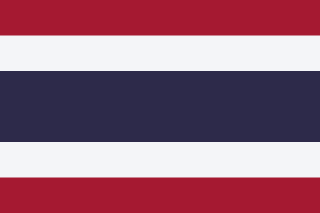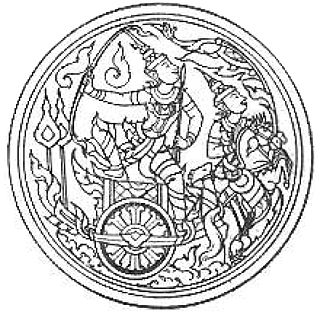
General Aviation (GA) represents the 'private transport' and recreational flying component of aviation.
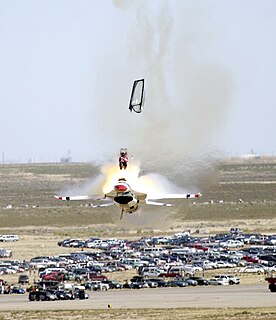
In aviation, an accident is defined by the Convention on International Civil Aviation Annex 13 as an occurrence associated with the operation of an aircraft, which takes place from the time any person boards the aircraft with the intention of flight until all such persons have disembarked, and in which a) a person is fatally or seriously injured, b) the aircraft sustains significant damage or structural failure, or c) the aircraft goes missing or becomes completely inaccessible. Annex 13 defines an incident as an occurrence, other than an accident, associated with the operation of an aircraft that affects or could affect the safety of operation.
Thai Airways International Public Company Limited, trading as THAI is the flag carrier airline of Thailand. Formed in 1988, the airline has its corporate headquarters in Vibhavadi Rangsit Road, Chatuchak District, Bangkok, and primarily operates from Suvarnabhumi Airport. THAI is a founding member of the Star Alliance. The airline is the second-largest shareholder of the low-cost carrier Nok Air with a 21.80 per cent stake, and it launched a regional carrier under the name Thai Smile in the middle of 2012 using new Airbus A320 aircraft.

Air Koryo is the state-owned national flag carrier airline of North Korea, headquartered in Sunan-guyŏk, Pyongyang. Based at Pyongyang International Airport, it operates international scheduled and charter services to points in Asia.

Phuket Air is an airline based in Bangkok, Thailand. The airline currently specialises in leasing its fleet of Boeing 747 and 737 aircraft on an ACMI as well as wet lease basis to airlines worldwide needing extra passenger capacity. Other services provided include international charter services, ad hoc wet leasing services, religious pilgrimage charters (Hajj/Umrah) and dry lease services. Saudi Arabian Airlines is a major long term client of Phuket Air. In the past, the airline provided scheduled domestic and international air services. Its main base is at Suvarnabhumi Airport, Bangkok, with a hub at Phuket International Airport, Phuket. The airline was an international scheduled carrier before it shifted its focus to the ACMI/wet lease market.

Wattay International Airport is one of the few international airports in Laos. It is located 3 km (2 mi) outside of the city centre of its capital, Vientiane. A bigger and new domestic terminal was constructed in 2018 connected to the international terminal. There is a Lao Air Force installation at one end of the airport.

Pt. Mimika Air, formerly known as GT Air is a charter airline based in Jakarta, Indonesia. It was established in 1998 and operates charter services for Djayanti, an Indonesian forestry company. Its main base is Halim Perdanakusuma Airport, Jakarta.

Kota Kinabalu International Airport (KKIA) is an international airport in Kota Kinabalu, the state capital of Sabah, Malaysia. It is located approximately 8 km (5.0 mi) southwest of the city centre. In 2017, 8 million passengers passed through the airport, making it the second busiest airport in Malaysia after Kuala Lumpur International Airport. A medium-sized airport with good connections to most major aviation hubs across the Asia-Pacific region, the airport serves the city of Kota Kinabalu as well as the entire west coast of Sabah.
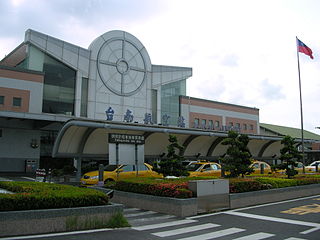
Tainan Airport is a commercial airport located in South District, Tainan, Taiwan. It is shared with Republic of China Air Force Tainan AFB. In January 2011, the Civil Aeronautics Administration approved the airport to handle international flights.

Krabi International Airport, is the international airport serving Krabi, Thailand. It is about 7 kilometres (4 mi) east of the city center. The airport opened on 10 July 1999. In 2017 the airport handled 4,339,599 passenger arrivals and departures. The terminal is designed for three million passengers, a number that has already been exceeded, and expansion will push its capacity to five million.
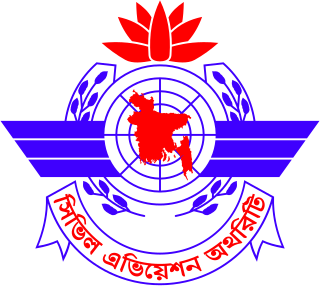
Civil Aviation Authority, Bangladesh (CAAB) functions as the regulatory body for all aviation related activities in Bangladesh. It is the national aviation authority operating under the Ministry of Civil Aviation & Tourism. All nine operational airports are operated by the CAAB. A member of International Civil Aviation Organization, it has signed bilateral air transport agreement with 52 states. It is headquartered in Kurmitola, Dhaka.
Myanmar National Airlines, formerly Union of Burma Airways, Burma Airways, and Myanma Airways, is a state-owned airline and the flag carrier of Myanmar, based in Yangon. It operates scheduled services to all major domestic destinations and to regional destinations in Asia. Its main base is Yangon International Airport. Founded in 1948.

Civil Aviation Timor-Leste is a government organization, part of the Department of Transport & Communications in the Ministry of Transport, Communications and Public Works (MTCOP) to promote the safety, efficiency and regularity of aviation services in Timor Leste. The civil aviation division also has the responsibility for overall planning, implementation and operation of the aviation services in East Timor.
Intira Airlines is a charter airline based at Suvarnabhumi Airport in Bangkok, Thailand.
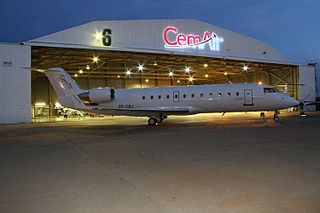
CemAir (Pty) Ltd is a privately owned airline operating in South Africa which services popular tourist destinations and important business towns and leases aircraft to other airlines across Africa and the Middle East. The airline is based in Johannesburg.

Prayut Chan-o-cha is a Thai politician, retired Royal Thai Army general officer, head of the National Council for Peace and Order (NCPO), and concurrently serves as the Prime Minister of Thailand. The council, which he appointed himself along with other junta members, has the power to name the prime minister and control prime ministerial positions.

The Department of Civil Aviation, Myanmar is an agency of the government of Burma. It is subordinate to the Ministry of Transport.
The Civil Aviation Authority of Thailand, is an independent agency of the Thai government under the oversight of the Minister of Transport. Its responsibilities includes prescribing, regulating, and auditing Thai civil aviation. It was formed in October 2015 from the split of the Department of Civil Aviation (DCA) into two separate agencies in response to the International Civil Aviation Organization's downgrading of Thailand's aviation safety rating. The other body split from the DCA is the Department of Airports (DOA), which operates airports previously managed by the DCA.

